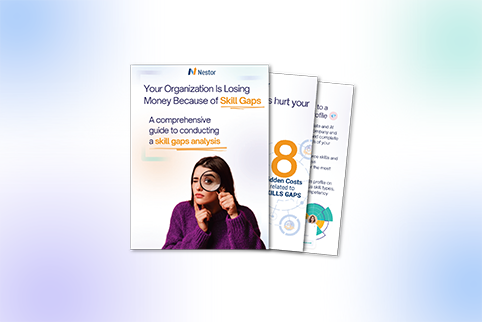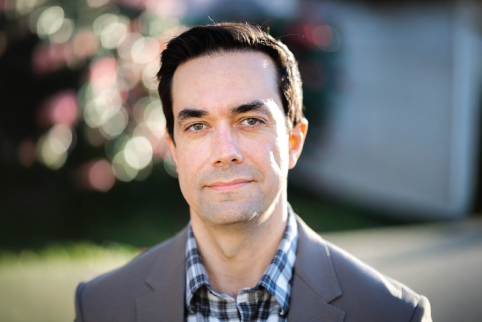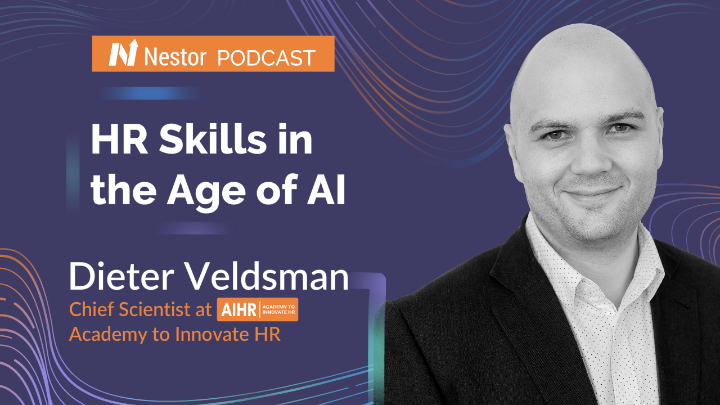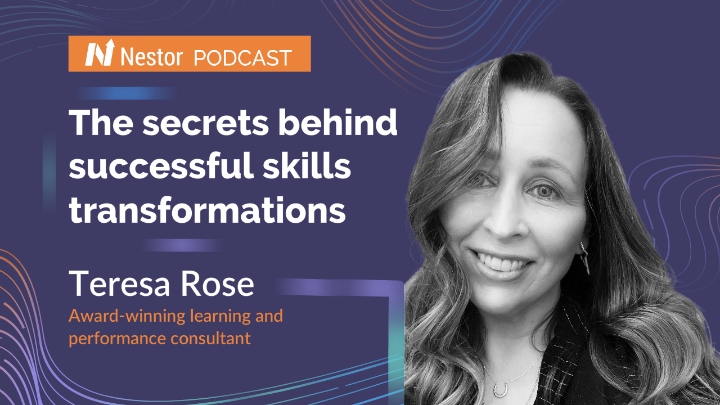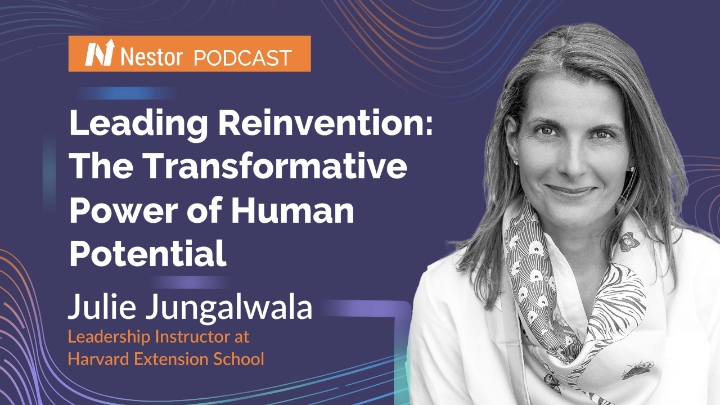The best-selling author and international keynote speaker, Paul Falcone joined us for a conversation about the managers’ role in navigating uncertain times, building resilience, and ways to tackle talent scarcity, a new reality that is here to stay.
Paul Falcone is the principal of Paul Falcone Workplace Leadership Consulting, specializing in management & leadership training, executive coaching, international keynote speaking, and HR advisory services.
He is the former CHRO of Nickelodeon and has held senior-level HR positions with Paramount Pictures, Time Warner, and City of Hope. He has extensive experience in entertainment, healthcare/biotech, and financial services, including in international, nonprofit, and union environments.
Paul is the author of a number of bestselling books including his latest, “The First-Time Manager: Leading Through Crisis”.
He is a certified executive coach through the Marshall Goldsmith Stakeholder Centered Coaching program, a long-term columnist for SHRM.org and HR Magazine, and an adjunct faculty member in UCLA Extension’s School of Business and Management.
You can connect with Paul on LinkedIn or follow him on Twitter @PaulFalconeHR.
Raluca Apostol is the Chief Product Officer at Nestor and you can connect with her on LinkedIn or Twitter @RaluApostol.
What would be in your opinion, the most important skills that managers are interested in during times of crisis?
Paul Falcone: It’s a great question. When I started writing my new book called “The First-Time Manager: Leading Through Crisis” I talked about what is it that CEOs are looking for. And it had always been like the big three, they want leadership, they want communication, and they want team building. And those three are still there, but now it gets more fine-tuned. Now they’re talking about creativity and innovation, collaboration, accountability, and even crisis management.
But in survey after survey after survey, it’s agility. They want adaptability. They want people who can roll with the punches because everything is changing so quickly. And that’s kind of where I focus the book: how do we build on these things, especially the agility piece?
What’s the role of soft skills and digital skills in supporting agility? And how do you envision the future? Will it be more reliant on soft skills or digital skills?
Paul Falcone: Well, there’s a few things. I think as a society, we’ve lost the ability to sit around the campfire and pass wisdom from the elders down to the younger generation. We’re just too busy. That’s why staff meetings are so important. That’s why one-on-one meetings are so important with your employees. You can’t lose that human factor.
When I was growing up in HR, they called it soft skills. Well, nowadays they call it emotional intelligence. And nowadays, right now the CEOs are saying they need emotional intelligence in their leaders as well, because when we moved to a remote, or at least a hybrid workforce, you still have to be able to build relationships with people, even if they’re not there with you in the office.
And in light of the great resignation and the scarcity of talent, we need to make sure that we’re not losing our people because they’re feeling isolated or feeling disconnected from the company. We need leaders who have those abilities. So that’s why I think it’s a combination of a few things. Still, the people factor to me is the most important thing.
People join companies but leave managers. They join the company, the idea of what the company holds, the potential, they want to be part of that team.
— Paul Falcone

Two years later, they’re like, “Get me out of here. I can’t work for this person anymore.” But if you can just focus on building the muscle of that frontline operational leadership team and your senior executive team, it changes everything. It changes the culture, it changes the way people think, and operate, what they assume. And all of a sudden you can turn people into coaches, a fundamental shift from that management down style to the leadership through or the collaboration up.
You can make that change. It changes cultures. It keeps people happy. It gives people room to grow and find their own traction, find their own way. But the boss is there to coach and mentor rather than be the unilateral disciplinarian and decision-maker. So I think that’s fundamental.
To the second part of your question, the digital data is where it’s all going. When you look at what Nestor is doing or what other organizations are doing, I think that’s really a differentiator. Can you look at something called human capital talent, or people analytics, and can you figure out where are you getting the most return on your investment versus what are things that maybe you’re doing that aren’t really doing much for the organization?
I think that data intelligence is gonna point you in the right way of knowing where to focus your efforts to get the most out of your people and have fun while you're doing it.
— Paul Falcone

It’s so important to be, to have fun as well because it’s not just about getting the job done.
Do you have any practical example of a manager building resilience or demonstrating it with their team?
Paul Falcone: To me, it’s sitting down with your team and just talking about it. We know that CEOs are looking for agility, adaptability, and change management, so what does that mean to us? And what and how should we be thinking? What should it look and feel like on our team? And how can we apply it to one of the projects that we’ve got working on right now?
You want to educate people that this is in the company’s best interest to be agile, but people need to see that it’s in their best interest also. Because many human beings still are resistant to change, especially a significant change. That’s a natural resistance that certain people have. But I would also say the rising tide lifts all boats.
You have to get everyone involved. And the best way to do it is to bring it to them, talk about what it might look like, what it should look like, and talk about a practical example that you’re challenged with right now. And all of a sudden, everyone can get on board, some more quickly than others. Some people are early adopters. Other people are stiff resistant to change.
I don’t really want to use the term peer pressure, maybe that’s not the right term. But the point is everyone starts to step up and those who are naturally resistant start to step up too, because everyone else is doing it and it’s not killing them. But it should be done in a positive context, not negative one.
When you can sit and talk about these things and understand that these are the trends going forward you’ll be surprised how people will turn to that because it’s like they’re all part of the solution. They all have a chance to talk about it, ask their questions, and make their suggestions.
But as much as you can devolve that decision-making, so to speak, as much as you can share it, as much as you can make it a consensus that everyone wants to move in that direction, then they can really make it real. And where it goes, you don’t know. Give them the discretion to figure out what’s the priority they want to work on right now and demonstrate this new mindset.
One of the challenges mentioned in your book is dealing with employee turnover and talent shortage. What strategies can managers and HR leaders use to retain top performers?
Paul Falcone: The first thing I talked about is to take people to the 30,000-foot level and let them see things from a different perspective. We’re all working in the weeds. That’s what we do every day, all of us. And that’s how it’s supposed to be. But when you can give them a different perspective, they start to see things in a different light.
The big thing about talent scarcity is we’re seeing it now, we saw it certainly through the pandemic, we’re seeing it now in this post-pandemic reintegration phase that we’re in. But the truth of the matter is, this is gonna be for the rest of the century, COVID just pushed the door open a little bit.
But when you look at the major industrialized nations, they’re all facing talent scarcity. China now has a 30-year infrastructure plan built with Africa so that they know at least they’re gonna be able to get human capital to do the work. Japan has, I think roughly 125 million residents. That number is gonna be closer to 88 million by the middle of the century and the average age is gonna be over 60.
South Korea has the lowest birth rate on the planet. We see these challenges over and over again. So how do you get the most out of your workforce? Well, one of the things we do well in this country is for example, with women in leadership. There are now more women graduating with bachelor’s degrees, law degrees, and medical degrees than males. Other countries don’t have that. And that labor force participation rate becomes really, really critical.
The same thing I’d say for diverse voices, thoughts, and ideas. That’s what Gen Y and Gen Z want. That’s one of their top three or top five priorities. That’s why you see the DEI movement going where it’s going. But it actually ties into this idea of talent scarcity and how are we gonna be able to take care of our own?
When the baby boom was born, right after World War II in 1946, there were 77 million babies born between the end of the war and 1964, when they introduced the birth control pill. All of a sudden in 2011 something happened that no one paid any attention to. The first baby boomers turned 65. And now from 2011 to 2029, we have 77 million Americans moving into retirement. That’s 10,000 people every day over 18 years. So that’s problem number one. The baby boom is leaving.
But now you’ve got another problem. Following the baby boom was Gen X, also known as the baby bust generation. It was only half the size of the baby boom, a little more. But the point is, when you look at all these things, labor scarcity is real. Now the millennials are coming. They were born in 1980, and they’re now moving into senior management roles. They’re probably 43 and under roughly.
But the reality is not evenly dispersed, there will be large swaths of talent gaps that industrialized nations are really gonna have to deal with. But what do we do? And how do you develop talent? And how do you grow your own?
Because I think one of the changes we’re gonna see going forward it’s gonna be about talent development, talent management. How do you get the most out of your own employees? Because you won’t be able to necessarily rely on constantly going external to find new talent. We’ve been able to do that for the last five decades, but I don’t know that that’s gonna be continuing for the next five decades.
So growing talent is a matter of talking to your employees about that. What does it mean to reskill? What does it mean to upskill? We’re all leaders regardless of whether you’re an individual contributor or you’re in management, but what does leadership even mean?
And having these kinds of conversations is again, that’s how you grow talent. I would tell my employees who worked for me, “My goal is to have you replace me. At some point, I won’t be here. What I’m hoping is there’ll be a smooth transition so that someone I internally can move into my role, so how do I help you get there?”
And that selfless leadership really keeps people around. It keeps them happy. People are not gonna leave for 20% to go somewhere else when they feel like they really love their boss. So people will stay. And I’m happy to say I’ve had good retention on my teams. I’ve had very little turnover through my three decades in HR. But I think when people feel caring when they feel that selflessness, they’re not gonna go anywhere very quickly. And I think that the human bond is really critical to retention.
From your point of view, how can managers identify the right skills for their people immediately and help them grow?
Paul Falcone: I think when it comes to trying to figure out what are the next gen of skills, managers don’t necessarily know. We know that things are gonna be changing. We see that things are changing, but the reality is, is there a benchmark?
There are free courses where people can learn all kinds of skills, take different kinds of classes. There’s about a half dozen of them that are big, but there’s gonna be a lot more of these coming.
And these are usually professors from very high-profile universities globally that talk and train about particular topics and their free education. The whole idea is to enlighten the world and it’s great. And you can do more, you can pay for certain elements of it if you wanna get certified or if you wanna take a test, but the classes themselves are free. What I would say is to spend some time on these websites.
Many of the classes are technical-driven, AI, this kind of thing. But many of them are on how to become more enlightened in what you’re doing. Whether you wanna call it soft skills or you wanna call it emotional intelligence or having a stronger EQ as opposed to an IQ.
The intelligence quotient is pretty much what you’re born with. We’re about as smart as we’re gonna be. We can change it a little bit, but we’re pretty much there. The emotional quotient, the EQ is like a muscle. You can get better at it. You can get better at being more empathetic with other people. You can become a stronger listener.
When you think about what is your favorite boss, and I go through this exercise, I teach at UCLA every time, and I say to the students, “Tell me about your favorite boss. Don’t tell me who it was or which company, just describe the person.”
And they say things like “It’s someone who challenged me to do things I didn’t even think I was ready for yet. She seemed to have more faith in me than I had in myself.” Or the next student says, “It’s someone who really valued education and it was because of him that I went back and got my bachelor’s degree.” Or the third student says, “It was someone who always made me feel like I had a seat at the table. What I had to say was important and I always felt included.”
My question is, “Are you describing their doingness or their beingness? Are you describing what they did or are you describing who they are or who they were”. And they talk about it, and usually the hands come up and they say, “Oh, it’s what he did. It’s what she did. And as they’re talking about it, one student invariably says, “Well, wait a second, I think it’s really who they were. It’s because of who they were that they did what they did.”
Bingo, that’s the answer. The point is we’re making this harder than we have to. We’re constantly trying to do, do, do, when in reality, the best boss you’ve ever had is just someone who gave you the space to find your own way.
It comes down to two things, character and caring. They talked about someone whom they respected and admired, but someone who they felt they had a natural connection with. That’s it.
So spend some time with the MOOCs, the Massive Open Online Courses. See what’s available out there. You’ll start to flag pretty quickly, “I think we can get better at this, or maybe we should have our employees do a course on this.” Doesn’t cost anything.
You have to kind of trigger your idea. It’s hard to tell some manager, “Do me a favor, tell me what skills you’re missing and what skills you need going forward.” It’s a hard question to answer in the abstract but give them the list of the courses that are offered with these MOOCs as an example.
All of a sudden you’ve got people saying, “I think there are three things that we really need to get better at, agility being one of them.” And all of a sudden you can build a game plan fairly quickly for your people.
How about your vision of leadership? What is a common thing you learned from all your senior roles, experiences, writing books, and even teaching students?
It’s a great question. It’s hard to put it down into one thing, but it’s gonna be somewhere between “expect the unexpected and be willing to unlearn what you think you already know.” I’ve also written a book on workplace ethics, which covers some of this stuff too.
And it’s funny because we look at these changing times very, very quickly and it is amazing to be aware now, technically in the fourth industrial revolution. Again, I always take my students and my employees to that 30,000-foot view. I want them to understand what is it that we’re really going through right now.
It was I think in 2016, this fusion of technologies that blurs the lines between the physical world, the digital world, the biological spheres. It’s like all of a sudden, we’ve got a whole new world. Generative and adaptive AI, the metaverse. We talk about quantum computing, machine learning, the Internet of Things, blockchain, 3D printing. It’s so overwhelming that the average human being just looks at it and it frightens them a little bit. It’s almost too much to take in.
So the reality for me is this. What I tell people is, “Look guys, you got to always be thinking 30,000-foot view. We work in the weeds, we live in the weeds. But think about this – What are some of the new jobs that are going to be created going forward that maybe you’re not going to have, but your kids are going to have? Let’s talk about this. And I want you guys to go home and do a homework assignment. Google it, research it. We’re going to meet tomorrow and I want to hear about what are the jobs of tomorrow and what are they going to be?”
And then they come back and they’re like, “This is interesting, vertical agriculture, solar carpool, carports, automobiles that dispense medicine, and take your blood pressure and your weight every time you sit behind the wheel, smart toilets that can put biomarkers in the water or that can figure out if there’s a problem with your health.”
There's so much coming. I want people to be excited about it, I don't want them to be afraid of it.
— Paul Falcone

It’s easy to get overwhelmed by all this stuff and be frightened. The reality is though, we have continued. We’ve had the industrial revolutions that take us through steam and coal and electricity and the worldwide web. We have the introduction of the atomic age. There’s so much change happening in the last 200 years. And now the windows are tighter.
In 1969, the Industrial Revolution III came up with semiconductors mainframe computers and microprocessors, and the advent of the World Wide Web. In 2016, they coined the term IR4, Industrial Revolution IV, where we’re seeing all new things.
The ability to adapt is the best for people in terms of their mental health so that they're not afraid of it, that they could play with it a little bit, research it. But more importantly, make it practical.
— Paul Falcone

Because your kids are gonna ask you one day about it and you should be able to share with them some of those things. Not from a standpoint of frightening them, but for making it kind of exciting. There are a lot of things that are going on. We still feel this crisis and disruption that came from COVID, that’s not going away. Supply chain problems, talent scarcity, are gonna remain with us for a few years. It’s gonna take some time.
Things will settle down again, but at the same time, don’t get lost in all the hype, don’t get lost in all the craziness. Because even when it comes to artificial intelligence, you’re hearing big-name voices out there that are saying, “It’s the end of the world, the world is gonna end.” So slow down a little bit, we’re talking about it too much, now the world is not gonna end. A year ago, we weren’t even talking about this.
Take ChatGPT for example, which came on the scene in November 2022. And all of a sudden people are talking about doomsday. I think we just need to calm the room. I think we need to come from the wisdom, calm them down a little bit, and give people back to themselves. And that’s what I hope the book, “Leading Through Crisis” does. I hope it gives practical tools and has a happy ending. It’s not to frighten people, but it’s to help them become aware of how they can adapt themselves and actually have fun doing it.



